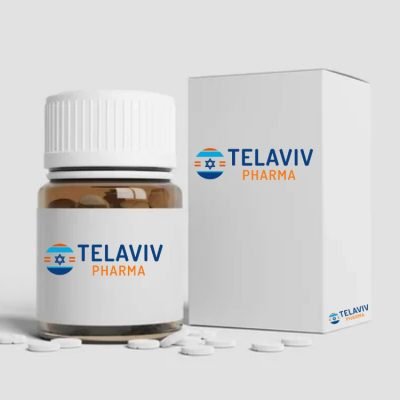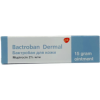- FREE SHIPPING! on orders over $95*
No products in the cart.
Return To Shop
Vermazol
$16.00
Vermazol (mebendazole) is an anthelmintic medication used to treat intestinal worm infections including roundworm, whipworm, pinworm, and hookworm. This benzimidazole derivative works by preventing worms from absorbing glucose, causing them to die and be eliminated from the body naturally. For patients seeking affordable antiparasitic medications, working with qualified healthcare providers ensures proper diagnosis, appropriate treatment duration, and access to authentic treatments with proper safety oversight for managing parasitic infections effectively.
- Prescription Required
- Please note all prices are in US dollars
Vermazol (Mebendazole) – Complete Product Information
Vermazol (mebendazole) is a broad-spectrum anthelmintic medication belonging to the benzimidazole class of drugs, specifically designed to treat various intestinal parasitic worm infections. The medication works by selectively inhibiting glucose uptake in parasitic worms, effectively starving them of their primary energy source while having minimal effects on human glucose metabolism.
Mebendazole’s mechanism of action involves binding to β-tubulin in parasitic worms, preventing the formation of microtubules that are essential for cellular functions including glucose transport, secretory processes, and reproductive functions. This selective toxicity makes mebendazole highly effective against parasites while being relatively safe for human hosts.
The medication demonstrates excellent activity against adult worms, larvae, and eggs of various intestinal parasites. Unlike some other antiparasitic drugs, mebendazole has poor absorption from the gastrointestinal tract in humans (less than 10%), which means it remains concentrated in the intestinal tract where parasites reside, enhancing its therapeutic effectiveness while minimizing systemic side effects.
Vermazol is available in tablet and chewable tablet formulations, typically containing 100mg or 500mg of mebendazole. The medication can be taken with or without food, though taking it with fatty meals may slightly increase absorption. For certain infections, treatment may require only a single dose, while others may need multiple days of treatment.
Clinical Effectiveness and Spectrum: Mebendazole demonstrates high cure rates against multiple parasitic infections. For pinworm infections, single-dose treatment achieves cure rates exceeding 90%. For roundworm, whipworm, and hookworm infections, the medication typically requires a 3-day treatment course with cure rates ranging from 70-100% depending on the specific parasite.
For patients with infectious conditions, mebendazole offers the advantage of treating multiple parasitic infections simultaneously, which is particularly beneficial in areas where mixed infections are common. The medication’s safety profile makes it suitable for mass treatment programs in endemic areas.
Important Safety Considerations: While mebendazole is generally very safe due to its poor systemic absorption, certain precautions are necessary. The medication should not be used during pregnancy, especially in the first trimester, due to potential teratogenic effects observed in animal studies. Patients with liver disease require monitoring, as rare cases of hepatotoxicity have been reported with high-dose, long-term treatment.
Recent research has explored mebendazole’s potential anticancer properties, though these applications remain investigational and should not be pursued outside of clinical trials. The primary focus remains on its established use as an antiparasitic agent with decades of proven safety and efficacy.
For patients managing multiple health conditions, coordination with infectious disease specialists or tropical medicine experts may be beneficial for complex parasitic infections. Those taking other antiparasitic medications should ensure proper timing and avoid unnecessary drug interactions. Patients exploring affordable infection treatment options should work with qualified healthcare providers to ensure proper diagnosis through stool testing, appropriate treatment selection, and follow-up monitoring to confirm parasite elimination and prevent reinfection.
| Brand | Vermazol brand |
|---|---|
| Form | 100mg 30 Tablets |
Mebendazole is generally well-tolerated due to its poor systemic absorption, with most patients experiencing few or no side effects. When adverse effects occur, they are typically mild and transient.
Very Common Side Effects (≥10% of patients):
- Abdominal pain: Mild stomach discomfort, often related to dying parasites
- Diarrhea: Loose stools as parasites are eliminated from the body
Common Side Effects (1-10% of patients):
- Nausea: Stomach upset, usually mild and temporary
- Vomiting: May occur, particularly in children
- Flatulence: Increased gas production
- Headache: Usually mild and self-limiting
- Dizziness: Temporary lightheadedness
- Rash: Mild skin reactions
Uncommon Side Effects (0.1-1% of patients):
- Allergic reactions: Skin rash, itching, urticaria
- Fever: Low-grade temperature elevation
- Hair loss (alopecia): Temporary hair thinning with prolonged use
- Fatigue: General tiredness or weakness
- Loss of appetite: Temporary decreased food intake
- Sleep disturbances: Difficulty sleeping or restlessness
Rare Side Effects (0.01-0.1% of patients):
- Severe allergic reactions: Anaphylaxis, severe skin reactions
- Blood disorders: Neutropenia, thrombocytopenia (with high doses)
- Liver problems: Elevated liver enzymes, hepatitis (rare)
- Kidney effects: Changes in kidney function (very rare)
- Seizures: Extremely rare, usually with very high doses
High-Dose or Prolonged Treatment Side Effects:
- Bone marrow suppression: Reduced white blood cell count
- Liver toxicity: Elevated liver enzymes, jaundice
- Severe alopecia: Significant hair loss
- Gastrointestinal bleeding: Rare but serious complication
- Peripheral neuropathy: Nerve damage with very prolonged use
Gastrointestinal Side Effects (Most Common Category):
- Cramping: Intestinal cramping as parasites are expelled
- Bloating: Abdominal distension
- Constipation: Less common than diarrhea
- Metallic taste: Altered taste perception
- Dry mouth: Reduced saliva production
Neurological Side Effects:
- Mild confusion: Temporary cognitive effects (rare)
- Irritability: Mood changes, especially in children
- Tremor: Mild shaking (very rare)
- Visual disturbances: Temporary vision changes (extremely rare)
Dermatological Side Effects:
- Pruritus: Itching without visible rash
- Eczema: Skin inflammation and rash
- Stevens-Johnson syndrome: Severe skin reaction (extremely rare)
- Photosensitivity: Increased sensitivity to sunlight (rare)
Hematological Side Effects (with high-dose treatment):
- Anemia: Reduced red blood cell count
- Leukopenia: Low white blood cell count
- Thrombocytopenia: Low platelet count
- Pancytopenia: Reduction in all blood cell types (very rare)
Drug Interaction Side Effects:
- Enhanced metabolism: Reduced effectiveness with enzyme-inducing drugs
- Altered absorption: Changes in effectiveness with antacids
- Increased side effects: With drugs affecting liver metabolism
Pregnancy and Reproductive Effects:
- Teratogenic potential: Birth defects in animal studies
- Fertility effects: Potential impact on male fertility with high doses
- Pregnancy complications: Avoid use especially in first trimester
Special Population Considerations:
- Children: Generally well-tolerated but monitor for behavioral changes
- Elderly: Similar side effect profile but may be more sensitive
- Liver disease: Increased risk of hepatotoxicity
- Kidney disease: Generally safe due to minimal systemic absorption
Signs of Serious Side Effects Requiring Medical Attention:
- Severe abdominal pain: Intense cramping or sharp pain
- Blood in stool: Any signs of gastrointestinal bleeding
- Severe allergic reactions: Difficulty breathing, swelling, severe rash
- Yellowing of skin or eyes: Signs of liver problems
- Unusual bleeding or bruising: Possible blood disorder
- Persistent vomiting: Inability to keep medication down
Treatment Duration-Related Effects:
- Single dose: Minimal side effects, usually well-tolerated
- 3-day course: Mild gastrointestinal effects most common
- Prolonged treatment: Increased risk of systemic effects
- High-dose therapy: Requires careful monitoring for serious side effects
Post-Treatment Effects:
- Worm expulsion: May see dead worms in stool (normal)
- Temporary digestive changes: Bowel habits may take time to normalize
- Fatigue: Body recovering from infection and treatment
- Appetite changes: May improve as infection clears
Important Safety Note: Most side effects from standard-dose mebendazole treatment are mild and resolve quickly. However, patients should be aware that seeing dead worms in stool after treatment is normal and indicates the medication is working effectively.
Emergency Warning Signs: Seek immediate medical attention for severe allergic reactions, signs of liver problems (yellowing skin/eyes, dark urine), unusual bleeding, or severe persistent abdominal pain that worsens rather than improves after starting treatment.
Vermazol (mebendazole) has well-established indications for treating various intestinal parasitic infections, with effectiveness demonstrated through decades of clinical use worldwide:
Primary Indications:
Enterobiasis (Pinworm Infection):
- Causative organism: Enterobius vermicularis
- Patient population: Children and adults, highly contagious within families
- Treatment regimen: 100mg single dose, repeat after 2-3 weeks
- Cure rate: >90% with proper treatment and hygiene measures
- Special considerations: Often requires household treatment to prevent reinfection
Ascariasis (Roundworm Infection):
- Causative organism: Ascaris lumbricoides
- Treatment regimen: 100mg twice daily for 3 days or 500mg single dose
- Cure rate: 85-100% depending on worm burden
- Clinical benefits: Eliminates adult worms up to 35cm in length
- Monitoring: Follow-up stool examination recommended
Trichuriasis (Whipworm Infection):
- Causative organism: Trichuris trichiura
- Treatment regimen: 100mg twice daily for 3 days
- Cure rate: 70-90%, may require repeat treatment in heavy infections
- Symptom improvement: Reduces abdominal pain and diarrhea
- Nutritional benefits: Improves iron absorption and reduces anemia
Hookworm Infections:
- Causative organisms: Ancylostoma duodenale, Necator americanus
- Treatment regimen: 100mg twice daily for 3 days
- Cure rate: 80-95% for most hookworm species
- Anemia improvement: Reduces blood loss and improves iron status
- Prevention of complications: Reduces risk of iron deficiency anemia
Secondary and Off-Label Uses:
Mixed Intestinal Infections:
- Multiple parasites: Single drug effective against several species simultaneously
- Endemic areas: Particularly useful in regions with high polyparasitism
- Mass treatment programs: Used in community deworming initiatives
Capillariasis:
- Causative organism: Capillaria philippinensis
- High-dose treatment: 200mg twice daily for 20 days
- Severe infections: Life-threatening condition requiring intensive treatment
- Monitoring required: Close medical supervision necessary
Investigational Use - Echinococcosis:
- High-dose regimen: 40-50mg/kg/day for extended periods
- Adjunct to surgery: Used perioperatively to reduce cyst viability
- Specialist supervision: Requires infectious disease or surgical expertise
- Limited efficacy: Variable response rates
Clinical Study Evidence:
Efficacy Data by Infection Type:
- Pinworms: 95-100% cure rate with single dose plus hygiene measures
- Roundworms: 85-100% cure rate with 3-day treatment
- Whipworms: 70-90% cure rate, lower in heavy infections
- Hookworms: 80-95% cure rate varies by species
- Mixed infections: 80-90% overall cure rate for multiple parasites
Community Impact Studies:
- School-based programs: Significant improvement in educational outcomes
- Nutritional benefits: Improved growth and development in children
- Anemia reduction: Decreased prevalence of iron deficiency anemia
- Quality of life: Reduced abdominal pain and digestive symptoms
Dosing Protocols:
Standard Adult Dosing:
- Pinworms: 100mg single dose, repeat after 2-3 weeks
- Other roundworms: 100mg twice daily for 3 consecutive days
- Alternative regimen: 500mg single dose for roundworms and hookworms
- Severe infections: May extend treatment to 5-7 days
Pediatric Dosing (≥2 years):
- Weight-based dosing: Same mg/kg dose as adults
- Chewable tablets: Easier administration for children
- Crushed tablets: Can be mixed with food for young children
- Safety profile: Generally well-tolerated in children
Special Dosing Considerations:
- Liver impairment: Use with caution, monitor liver function
- Kidney disease: No dose adjustment typically required
- Elderly patients: Standard dosing usually appropriate
- Pregnancy: Avoid use, especially first trimester
Treatment Protocols by Setting:
Individual Treatment:
- Confirmed diagnosis: Based on stool examination findings
- Symptom-based treatment: For characteristic presentations
- Follow-up testing: Stool examination 2-4 weeks post-treatment
- Hygiene counseling: Prevention education to avoid reinfection
Household Treatment:
- Pinworm infections: Treat all household members simultaneously
- Environmental measures: Cleaning and hygiene protocols
- Timing coordination: Same-day treatment for all members
- Follow-up assessment: Monitor entire household for cure
Mass Treatment Programs:
- School-based deworming: Annual or biannual treatment cycles
- Community programs: Large-scale treatment in endemic areas
- Preventive chemotherapy: WHO-recommended approach for high-prevalence areas
- Coverage targets: ≥75% population coverage for effectiveness
Contraindications and Precautions:
Absolute Contraindications:
- Known hypersensitivity to mebendazole or benzimidazole compounds
- Pregnancy (especially first trimester)
- Children under 2 years of age
Relative Contraindications and Cautions:
- Liver disease: Monitor liver function with treatment
- Breastfeeding: Use with caution, monitor infant
- Seizure disorders: Rare reports of seizures with high doses
- Blood disorders: Monitor blood counts with prolonged treatment
Monitoring and Follow-up:
Standard Treatment Monitoring:
- Symptom assessment: Daily evaluation during treatment
- Side effect monitoring: Watch for gastrointestinal symptoms
- Treatment completion: Ensure full course is completed
- Post-treatment evaluation: Assess symptom resolution
Laboratory Monitoring:
- Follow-up stool testing: 2-4 weeks after treatment completion
- Multiple samples: 3 samples on different days for accuracy
- Liver function tests: For patients receiving high-dose or prolonged treatment
- Blood counts: With extended treatment courses
Treatment Success Criteria:
Clinical Cure Indicators:
- Symptom resolution: Elimination of abdominal pain, diarrhea, anal itching
- Negative stool tests: No parasites or eggs detected post-treatment
- Weight gain: Improved nutritional status in children
- Reduced anemia: Improved hemoglobin levels
Treatment Failure Management:
- Repeat treatment: Same regimen after 2-3 weeks
- Alternative medications: Consider albendazole or pyrantel
- Higher doses: Extended treatment courses for resistant infections
- Combination therapy: Multiple drugs for refractory cases
Public Health Considerations:
WHO Recommendations:
- Preventive chemotherapy: Annual treatment in high-prevalence areas
- School-age children: Priority population for mass treatment
- Coverage targets: 75% minimum coverage for community impact
- Integration: Combine with vitamin A, vaccination programs
Resistance Monitoring:
- Efficacy surveillance: Regular assessment of cure rates
- Genetic monitoring: Detection of resistance markers
- Alternative strategies: Rotation of different drug classes
- Combination approaches: Multi-drug regimens when indicated
Important Clinical Note: Mebendazole represents one of the safest and most effective treatments for common intestinal parasitic infections. Its excellent safety profile makes it suitable for mass treatment programs, while its broad spectrum of activity allows treatment of multiple parasites with a single medication.
For patients requiring specialized parasitology care, mebendazole represents a cornerstone therapeutic option with decades of proven effectiveness. Those managing complex parasitic infections should work with experienced infectious disease specialists who can coordinate comprehensive parasitic disease management and optimize therapy based on individual patient factors. Patients exploring alternative antiparasitic treatments must ensure proper medical supervision when indicated, as parasitic infections require accurate diagnosis through laboratory testing and should be managed with appropriate medical expertise and follow-up monitoring to confirm cure and prevent reinfection.
Quality Assurance and Drug Resistance:
Effectiveness Monitoring:
- Cure rate assessment: Regular evaluation of treatment success rates
- Geographic variation: Monitor effectiveness in different regions
- Population-specific outcomes: Track success in different age groups
- Resistance indicators: Declining cure rates may signal resistance development
Resistance Management:
- Drug rotation: Alternate between mebendazole and albendazole
- Combination therapy: Use multiple drugs for resistant infections
- Dosing optimization: Higher doses or longer courses when needed
- Alternative agents: Reserve other drugs for treatment failures
Patient Education and Compliance:
Treatment Education:
- Medication adherence: Importance of completing full treatment course
- Expected outcomes: Timeline for symptom improvement and worm elimination
- Side effect management: What to expect and when to seek help
- Follow-up importance: Need for post-treatment stool testing
Prevention Education:
- Hygiene practices: Handwashing, nail care, personal cleanliness
- Environmental control: Sanitation and household cleaning measures
- Food safety: Proper cooking and washing of vegetables
- Reinfection prevention: Strategies to avoid repeat infections
Economic and Access Considerations:
Cost-Effectiveness:
- Low medication cost: Inexpensive generic formulations available
- High cure rates: Excellent value for treatment investment
- Reduced complications: Prevents costly long-term health problems
- Mass treatment programs: Economies of scale for population health
Global Access:
- WHO essential medicines: Listed for global priority access
- Manufacturing capacity: Multiple generic manufacturers worldwide
- Distribution networks: Available through international health programs
- Regulatory approval: Approved in most countries globally
Integration with Health Systems:
Primary Care Integration:
- Diagnosis capabilities: Basic microscopy for parasite identification
- Treatment protocols: Standardized approaches for common infections
- Referral criteria: When to involve specialists
- Follow-up systems: Tracking treatment outcomes
Public Health Programs:
- School health programs: Integration with educational systems
- Maternal health: Coordination with prenatal care
- Nutrition programs: Combined with micronutrient supplementation
- Water and sanitation: Comprehensive prevention approaches
Future Directions and Research:
Ongoing Research:
- Resistance mechanisms: Understanding how resistance develops
- Pharmacokinetic studies: Optimizing dosing regimens
- Combination therapies: Evaluating multi-drug approaches
- Novel formulations: Improved delivery systems
Innovation Opportunities:
- Rapid diagnostics: Point-of-care testing for parasites
- Digital health: Mobile apps for treatment monitoring
- Precision medicine: Tailored treatment based on parasite genetics
- Vaccine development: Prevention strategies to reduce treatment needs
Important Clinical Note: Mebendazole remains a highly effective, safe, and cost-effective treatment for the most common intestinal parasitic infections worldwide. Its role in individual patient care and public health programs continues to be essential for reducing the global burden of parasitic diseases, particularly in children and underserved populations.
For patients requiring specialized parasitology care, mebendazole represents a cornerstone therapeutic option with decades of proven effectiveness and safety. Those managing complex or treatment-resistant parasitic infections should work with experienced infectious disease specialists or tropical medicine experts who can coordinate comprehensive care and optimize treatment strategies. The medication's excellent safety profile and broad-spectrum activity make it an invaluable tool in both individual patient management and population-level health interventions.
How does Vermazol work to eliminate worms?
Vermazol works by preventing parasitic worms from absorbing glucose, their primary energy source. The medication binds to specific proteins in the worms that are essential for glucose uptake and cellular function. Without glucose, the worms cannot survive and eventually die. The dead worms are then naturally eliminated from your body through bowel movements, which is why you might see them in your stool after treatment.
How long does it take for Vermazol to work?
Vermazol begins working immediately, but you may not see results for several days. Most intestinal worms die within 1-3 days of treatment, but it can take up to a week to see dead worms in your stool. Complete elimination of all parasites and their eggs may take 1-2 weeks. For some infections like pinworms, symptoms may persist for a few days even after the worms are dead.
Should I take Vermazol with food?
Vermazol can be taken with or without food. Taking it with fatty meals may slightly increase absorption, which could be beneficial for certain systemic infections, but for most intestinal worm infections, food timing doesnt significantly affect effectiveness. Choose whatever is most comfortable for your stomach, as some people find taking it with food reduces nausea.
Why do I need to repeat the dose for pinworms?
Pinworm treatment often requires a second dose 2-3 weeks after the first because the medication may not kill all the eggs. Pinworm eggs can survive in the environment for weeks, and you may become reinfected from eggs that were already present when you first took the medication. The second dose ensures that any newly hatched worms are eliminated before they can mature and reproduce.
Can I drink alcohol while taking Vermazol?
There are no specific interactions between mebendazole and alcohol, but its generally recommended to avoid alcohol during treatment. Alcohol can irritate your digestive system and potentially worsen side effects like nausea or stomach upset. Additionally, alcohol may interfere with your immune system's ability to help clear the infection.
Is it normal to see worms in my stool after taking Vermazol?
Yes, seeing dead worms in your stool after taking Vermazol is completely normal and actually indicates that the medication is working effectively. You may see whole worms or pieces of worms for several days after treatment. This is the natural way your body eliminates the dead parasites. If you continue seeing live, moving worms after a week, contact your healthcare provider.
Can the whole family take Vermazol at the same time?
For highly contagious infections like pinworms, healthcare providers often recommend treating all household members simultaneously to prevent reinfection. However, this should only be done under medical supervision. Each family member should be evaluated individually, and dosing should be appropriate for their age and weight. Pregnant women and infants under 2 years typically should not receive treatment.
What should I do if I vomit after taking Vermazol?
If you vomit within 30 minutes of taking Vermazol, you should retake the dose since the medication likely wasnt absorbed. If vomiting occurs more than 30 minutes after taking the medication, dont repeat the dose as sufficient medication has probably been absorbed. If persistent vomiting prevents you from keeping the medication down, contact your healthcare provider for alternative treatment options.
How do I prevent reinfection after treatment?
Prevention is crucial for avoiding reinfection. Wash hands thoroughly with soap and warm water, especially before eating and after using the bathroom. Keep fingernails short and clean, wash bedding and clothing in hot water, vacuum carpets and furniture, and avoid sharing personal items. For pinworms, shower in the morning to remove eggs laid overnight, and avoid shaking bedding which can spread eggs through the air.
Can I take Vermazol if Im pregnant or breastfeeding?
Vermazol should generally be avoided during pregnancy, especially in the first trimester, due to potential risks to the developing baby observed in animal studies. The decision to treat during pregnancy should weigh the risks of untreated infection against potential medication risks. For breastfeeding, small amounts may pass into breast milk, but its generally considered compatible with nursing under medical supervision.
Why did my doctor recommend multiple stool tests after treatment?
Follow-up stool tests confirm that the infection has been completely eliminated. Some parasites can be difficult to detect, and eggs may continue to be shed for a short time after adult worms have died. Testing is typically done 1-3 weeks after completing treatment. Multiple tests may be needed because parasites arent always detected in every stool sample, even when present.
Can Vermazol treat all types of worms?
Vermazol is effective against many common intestinal worms including pinworms, roundworms, whipworms, and hookworms. However, it doesnt treat all parasitic infections. Tapeworms, for example, may require different medications. Some tropical parasites and tissue-dwelling worms may also need alternative treatments. Proper diagnosis through stool testing helps ensure you receive the most appropriate medication.
What should I do if symptoms persist after treatment?
If symptoms persist beyond 2-3 weeks after completing treatment, contact your healthcare provider. This could indicate treatment failure, reinfection, a different type of parasite not susceptible to mebendazole, or another condition causing similar symptoms. Additional stool testing and possibly different medications may be needed. Dont retreat yourself without medical guidance.
Can I buy Vermazol online safely?
You can purchase Vermazol from licensed online pharmacies that may or may not require prescriptions depending on local regulations. Ensure youre using legitimate sources that provide genuine medications with proper storage and handling. While mebendazole is available over-the-counter in many countries, proper diagnosis of the specific parasite infection through stool testing helps ensure appropriate treatment and monitoring.
The content on this page has been supplied to onlinepharmacynow.com by an independent third party contracted to provide information for our website. onlinepharmacynow.com relies on these third parties to create and maintain this information and cannot guarantee the accuracy or reliability of the information that has been provided to us.
The drug information provided here is only a summary and does not contain all the list of possible side effects and drug interactions regarding this medication. Be sure to contact your doctor or pharmacist if you have any specific question or concern. If you require any advice or information about the drugs on this page, a medical condition or treatment advice, you should always speak to a healthcare professional.
Please note that not all products, including any referenced in this page, are shipped by our affiliated Europe Pharmacy. We are affiliated with other dispensaries that ship product to our customers from the following jurisdictions: Canada, New Zealand, Turkey and United Kingdom. The items in your order maybe shipped from any of the above jurisdictions. The products are sourced from various countries as well as those listed above. Rest assured, we only affiliate with our authorized dispensaries that procure product through reliable sources.
Required
Send Your Prescription
Secure Payment
No Hidden Fees
Fast Shipping
Typically Under 7 days

 Ask an expert
Ask an expert



Reviews
There are no reviews yet.